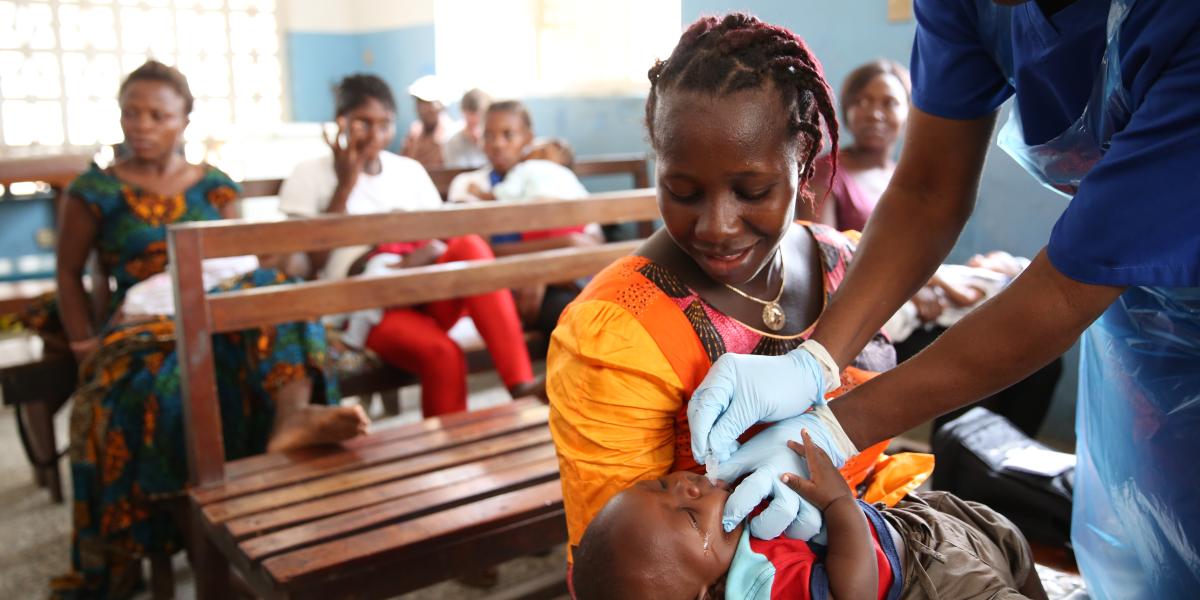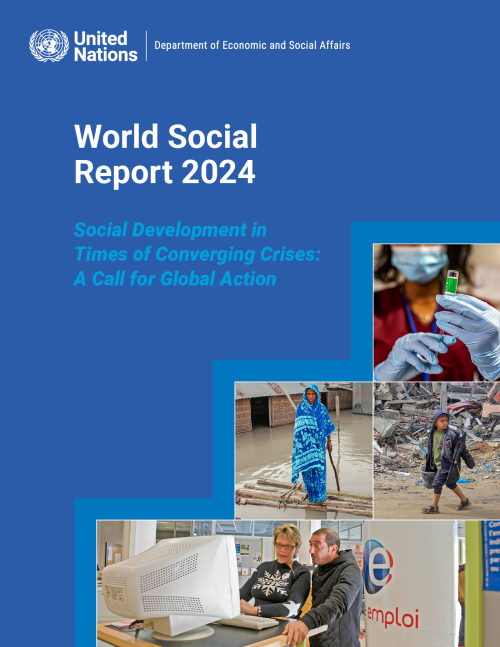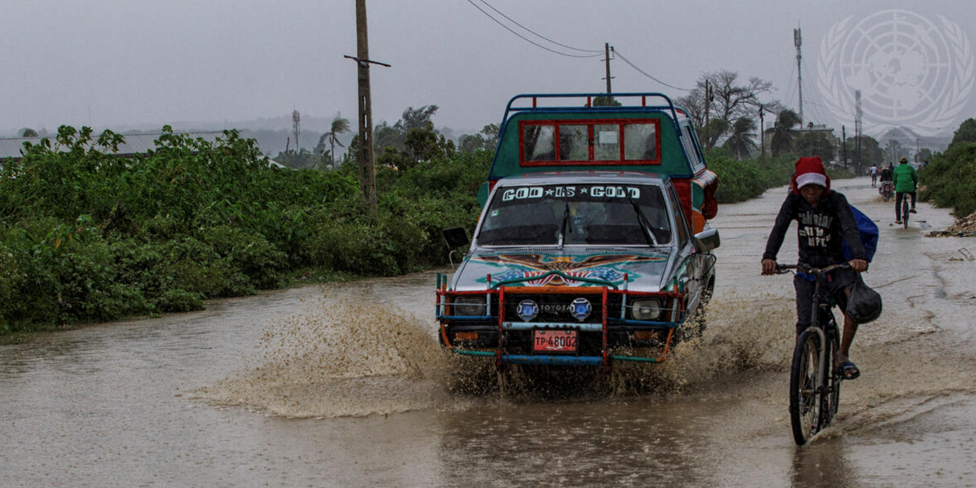Publications
Displaying 41 - 50 of 766
UN General Assembly Reports on Social Development |
Fact Sheet |
Following the conclusion of the post-2015 development agenda process and the adoption of the 2030 Agenda, this Action Plan intends to serve the sport for development and peace community in its contribution to the Sustainable Development Goals, placing sport in its role as an important enabler of sustainable development. It combines principles from previous editions of the Action Plan with new elements reflecting key developments in sport and related fields. In line with the reporting cycle on sport for development and peace, the Action Plan is intended to cover two years but to be applicable in the longer term. With a view to providing a global road map relevant to all stakeholders, this…
UN General Assembly Reports on Social Development |
Publication |
The Disability and Development Report 2024, “Accelerating the realization of the Sustainable Development Goals by, for and with persons with disabilities”, is an update of the 2018 edition of the same flagship report, produced in response to a request by the United Nations General Assembly in its resolution 75/154 of 23 December 2020.The report indicates that persons with disabilities are often left behind in the efforts to achieve Sustainable Development Goals by 2030, with wide gaps persisting between persons with and without disabilities, particularly on food security, health, and access to energy and ICT. Considering COVID-19, the report assesses the different ways the pandemic impacted…
Policy Briefs |
Understanding how population trends are likely to unfold in the short, medium and long terms is critical for achieving a more inclusive, prosperous and sustainable future as recognized in the Declaration on Future Generations. This policy brief provides an overview of some of the main findings of the recently released report, World Population Prospects 2024: Summary of Results (United Nations, 2024a) with the aim of helping countries prepare for population sizes, age structures and spatial distributions that may differ appreciably from those of their recent past.
ALL POPULATIONS ARE MOVING TOWARDS LONGER LIVES AND SMALLER FAMILIES
At first glance, the demographic outlook of countries…
UN General Assembly Reports on Social Development |
Recalling its resolutions 58/5 of 3 November 2003 and 59/10 of 27 October 2004, its decision to proclaim 2005 the International Year for Sport and Physical Education to strengthen sport as a means to promote education, health, development and peace, and its resolutions 60/1 of 16 September 2005, 60/9 of 3 November 2005, 61/10 of 3 November 2006, 62/271 of 23 July 2008, 63/135 of 11 December 2008, 65/4 of 18 October 2010, 67/17 of 28 November 2012, 69/6 of 31 October 2014, 71/160 of 16 December 2016, 73/24 of 3 December 2018, 75/18 of 1 December 2020 and 77/27 of 1 December 2022,
Please click on the publication link above for the full resolution, which is available in all six UN…
Flagship Reports |
According to the World Social Report 2024, urgent global action is needed to support national efforts to address the setbacks caused by the recent global crises, and to avoid the conversion of future shocks to crises.
Titled “Social Development in Times of Converging Crises: A Call for Global Action”, the World Social Report 2024 explains that, in our current global policy environment, shocks more readily turn into crises that cross boundaries, demanding international action. Particularly as such crises disproportionately impact the most vulnerable people, societies and countries.
Crisis-driven setbacks in poverty reduction and unemployment
Successive shocks, starting…
Policy Briefs |
INTRODUCTION
The recent confluence of crises – the COVID-19 pandemic, violent conflicts, and climate change – has caused severe setbacks to central objectives of social development, such as poverty eradication, employment generation, inequality reduction, and building inclusive societies. People and societies in vulnerable situations have been hit the hardest by the converging crises.
There are indications that shocks and crises are becoming ever more frequent, severe, and far-reaching – driven by the worsening effects of climate change, the growing probability of pandemics, growing geopolitical tensions, and increasingly dense global networks of trade, finance and transport. The…
Publication |
The UN DESA Annual Highlights report is a tool to communicate the contributions of the Department to the realization of internationally agreed development goals and shared social, economic, and environmental aspirations. It showcases the Department’s role in gauging trends, building capacities, and shaping solutions. UN DESA Highlights 2023–2024 covers activities over the period of the 78th Session of the General Assembly (September 2023 – August 2024) and reflects the Department’s response to the set priorities and expressed needs of Member States. Seven (7) thematic chapters showcase how UN DESA put its expertise to the task of supporting Member State efforts to implement the 2030 Agenda…
UN General Assembly Reports on Social Development |
English | Français | Español | Русский | عربي | 汉
The report, submitted pursuant to General Assembly resolution 77/27, examines the contribution of sport to achieving peace and the Sustainable Development Goals. It describes progress towards implementation between 2022 and 2024 of the United Nations Action Plan on Sport for Development and Peace. Drawing on inputs from leading global experts, Member States, the United Nations system and other stakeholders, the report focusses on progress in five priority areas of impact: (i) social inclusion through sport, (ii) physical activity, physical education, and community-based participation in sport, (iii) gender equality in…
 Welcome to the United Nations
Welcome to the United Nations




